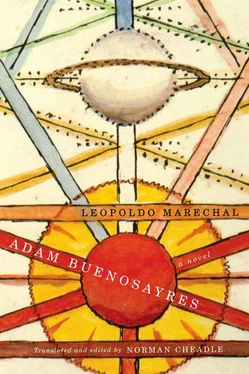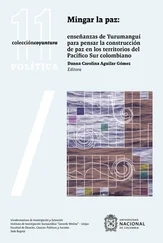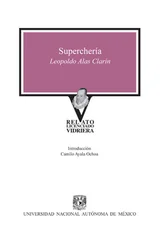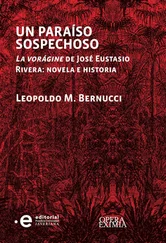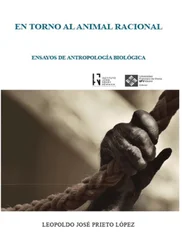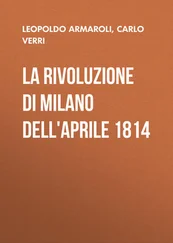— A good lesson! he exclaimed enthusiastically.
— A lesson I followed to the letter, even though it cost me my job.
— You followed it? protested the tabloid-man.
— Absolutely. I was fascinated by the smile of inexpressible imbecility on the Standard Reader’s face in your famous painting. Incredible as it may seem, his smile inspired in me such tenderness that I resolved to defend the Reader’s interests right down to my last drop of ink. And I got my first chance when I discovered the Saint Ignatius Dairy was selling watered-down milk or milky water. Understanding this as harm done to the Standard Reader’s first-level interests, meaning those of his stomach, I wrote an irate editorial that was never published…
Here, the tabloid-man guffawed obstreperously:
— You crashing idiot! he cried. Didn’t you know that the Saint Ignatius Dairy was giving us twenty columns’ worth of advertising a month?
— Your pointer failed to point that out, I said bitterly. The second time I applied your doctrine was when the streetcar companies tried to raise the fare. It was an insidious attack against the Standard Reader in his second-rank interests, those of his wallet; and, borne aloft by my righteous wrath, I wrote an editorial that never got the go-ahead from your red pencil.
— First-class pinhead! the tabloid-man qualified me. The streetcar companies were stockholders in our major daily.
— Your pointer didn’t reveal that in the pathetic figure of the Standard Reader. Now let’s move on to the night of the fire.
— That’s where I wanted to see you! the tabloid-man challenged me, not hiding his delight.
— The fire had broken out, and I went out in search of material for the report. Thanks to our powerful communications network, I arrived at the burning building before the firemen. Suddenly I heard shouts. Throwing myself into the fire, I was able to save a man. I pulled him clear of the flames and used my handkerchief to wipe the soot off his face. And whom did I find in that man? The Standard Reader himself! I felt something like the wings of glory graze my brow: with that humane act, how well had I defended the standard readers in their third-rank interests, those of the heart! I remember a suburban pharmacist disinfected my burns and, in admiration, filled my pockets with jellybeans. I returned triumphant to the newsroom, but dirty, beat-up, charred, and without a news report. Then I received news of my dismissal. And I left, swallowing my tears and my jellybeans.
The tabloid-man again laughed obstreperously:
— Great oaf! he said. Were you sent so you could show off in a rescue operation or so you could write a report? It was all your fault that we didn’t get the scoop on the fire.
— What about the Standard Reader I saved?
— The truly journalistic thing to do would have been to let him roast, and then write up two columns’ worth of weeping and wailing over him, headlined by a piteous groan in point-size seven.
— Monster! I shouted at him.
— And what did you do in the interests of the Standard Reader’s mind? the tabloid-man asked in a challenging tone.
— I had no chance to do anything, I answered. You had already taken it upon yourself to fill his brain with moronic cartoons, clichéd stories, insipid editorials, vapid maxims, sorry jokes, and photographs of naked actresses.
— What did you want me to do? Publish Aristotle’s Metaphysics in serial installments? No, brother! You failed because of your confounded lyricism. And I gave you plenty of warning!
— But you sure admired my lyricism when I wrote the obituary for the newspaper Founder’s death! Do you deny it made you weep with emotion?
— I don’t deny it. It was one rip-snortin’ elegy.
— And a lie from start to finish. The Founder was a miserable nobody. Fine. That night you crowned me with laurel leaves, but you refused to reimburse me for my supper.
— Eat supper? We were in mourning!
— And at the end of the month, you deducted money from our salaries to pay for a bust of the Founder.
— The Founder was a very thrifty Scotsman. That deduction must have given him pleasure beyond the grave.
— But the victims of the deduction got their own back.
— How? he asked in alarm.
— For your information, every night, before leaving the paper in the wee hours of the morning, the reporters used to go over to the bust of the Founder and take him down off his pedestal; then they formed a circle and ritually pissed on him.
— You don’t say! exclaimed the tabloid-man. No wonder the bust has such a nice sheen to it!
A silence hardened between us.
— Do you still hold a grudge against me? the tabloid-man asked me at last, looking at me timidly.
— No, I answered him. After all, getting fired was only an economic annoyance for me.
My words plunged him into thought, as though he were weighing alternatives in an inner struggle. Then, apparently defeated, he dug into the pocket of his gaudy jacket, pulled out a well-worn billfold, and opened it before my eyes:
— Brother, he sighed, three pesos is all I have left. Take two, and leave me one for the streetcar.
I quickly reached around to the back pocket of his trousers and brought to light another wallet stuffed with bills.
— Thanks, I answered. I know the trick.
Confused, the tabloid-man snatched back the second wallet in a huff and ran to the end of the infernal rotary press. Then I looked searchingly at Schultz, anxious to leave that sector. But a third tabloid-man came to meet me; not without anxiety I recognized Walker the redhead, my unfortunate comrade-in-arms at the newsroom. 128
– “I’m Walker the northerner,” he hummed in his madness. “My mother was a cardboard queen, my father a little tin soldier, with a heidy-heidy-ho!”
— With a hey-diddle-diddle and a heidy-heidy-ho! I chimed in.
— Attaboy, comrade! laughed Walker. That’s how the chorus went!
And he hummed again:
– “Was he a poet or no, Buenos Aires never knew. What does she know, what will she know, what could she know, the City of the Tobiano Mare? A smithy of images, a turner of musics, a smelter of vapours, such was Walker the redhead, when his two cheeks were rosy yet, and springtime let’m touch her pretty knees, with a heidy-heidy-ho!”
— With a hey-diddle-diddle and a heidy-heidy-ho!
Walker clapped sympathic eyes on me:
— We meet again, comrade! he laughed. May God keep you, brother.
And he took up his tune once more:
– “But one day along came an antimony devil and stood in Walker’s way: he was a daft wee devil, upon my word, a foolish devil not worth a farthing, oh. And yet, and yet, he led Red Walker astray, down from his ivory tower fair, to nocturnal tables in a newsroom-ho, where little leaden men ’neath mucilaginous lamps, turn and hone their little horse bun, that it may taint the pure threshold of dawn, with a heidy-heidy-ho!”
— With a hey-diddle-diddle and a heidy-heidy-ho.
– “Walker the Red resisted, aye, that he did so. His music’s banner he was loath to surrender — God’s teeth! Never and no! But the antimony devil is tenacious (if notoriously cretinous), and he unravelled Red’s tunic of innocence, thread by gossamer thread, and with cheerful shears pruned Red’s lyrical shoots, all those buds that used to burst out of him. So Walker, deep down in the hole went he, and forgot the light above with its peacock tail; and night after night his wee horse bun he honed, with a heidy-heidy-ho!”
— With a hey-diddle-diddle and a heidy-heidy-ho.
– “Till came a day when an aluminum angel alighted by Walker’s table and peered sadly at the redhead, who was clacking on his typing machine. ‘What hast thou done with thy soul?’ asked the Angel. ‘The antimony devil stole it,’ answered he. ‘You lie!’ cried the antimony devil who, beneath the gaze of the angel, twitched like the poor sod he was. Then Angel and Devil set to, they warred in words, a dialogue sublime that Walker heard in wonder. Then the Angel drew his sword and took off after the Demon: chased him all among the newsroom tables, and like a wee churchmouse the poor devil he squealed, with a heidy-heidy-ho.”
Читать дальше
